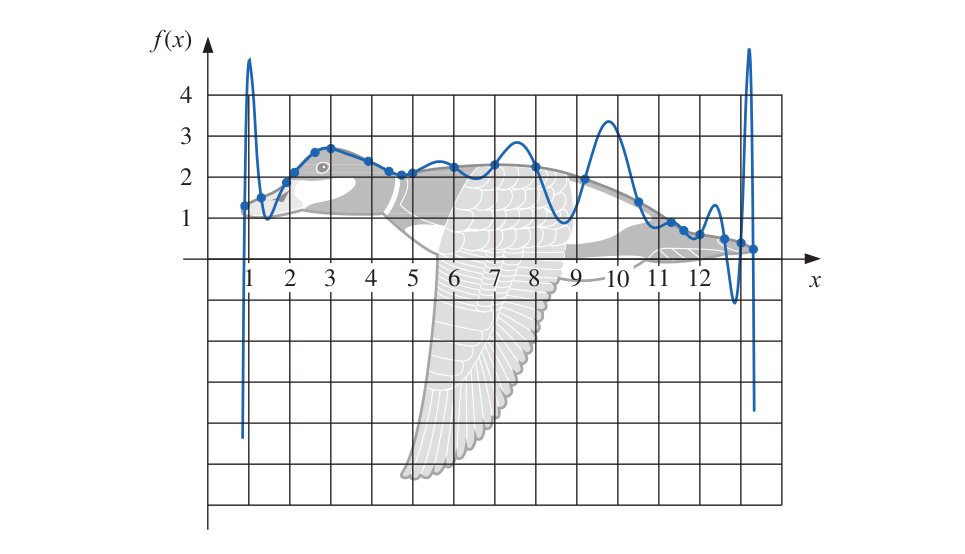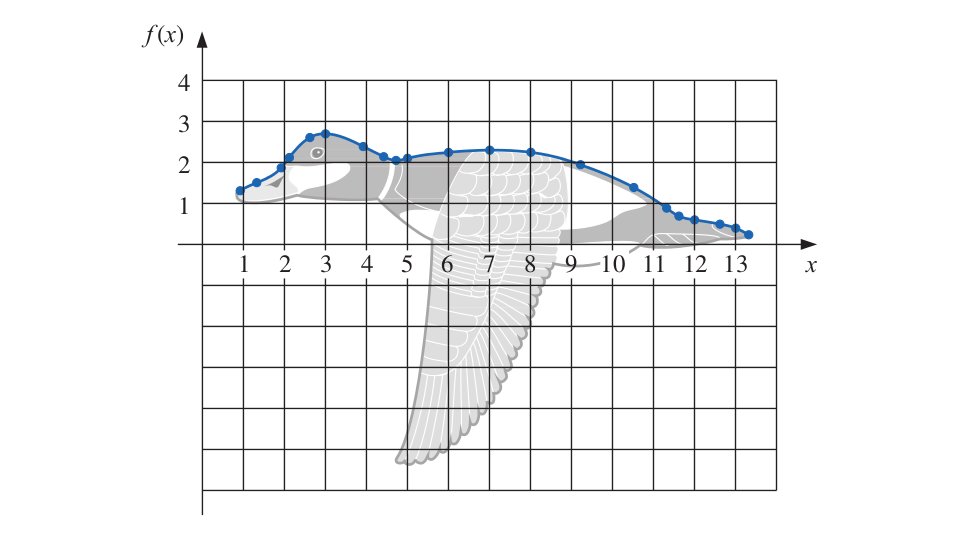Numerical Analysis (Graduate Level)
-
Math 609: Differential Equations with Matlab, section 600
-
Texas A&M University, Fall 2013
-
Syllabus
- Contacting me: The best way to contact me is via email. Please
note that you should not expect an immediate response 24 hours a day, but that I will
try to answer your email in a reasonable amount of time (usually I am
pretty fast). When
emailing, be sure to include your full name, and put [Math 609] in
the title.
-
Exam #1: 2013 Sept. 27, Friday, in class.
The major concepts covered may include: Positive definite matrices,
eigenvalues and the spectral radius, matrix norms, showing whether a matrix is
nonsingluar, iterative methods and their convergence, and matrix
factorizations.
Programming will NOT be on the exam.
Exam 1 Practice Problems
-
Exam #2: 2013 Nov. 15, Friday, in class. The major concepts covered may include:
Solving Systems: Chebyshev acceleration, Variational/minimization methods (e.g., conjugate gradient), Newton's method for solving nonlinear systems
Polynomial Interpolation: Lagrange interpolation, divided differences (Newton, Hermit, Birkhoff), Cubic Spline interpolation,
Trigonometric interpolation, Fourier Transforms and FFTs, Error estimation
Programming will NOT be on the exam.
Some practice problems for Exam 2 :
3.2, Newton's Method: 4, 5, 8, 16a, 22
4.7, SD & CG: 1, 2, 3, 7, 9
6.1, Polynomial Interpolation: 1, 9, 13, 14, 21
6.2, Divided Differences: 1, 4, 22, 23
6.3, Hermite Interpolation: 1, 3, 7, 12
6.4, Splines: 5, 6, 11, 17
6.12, Trig Interpolation (DFTs): 3, 4
6.13, FFTs: 2, 3, 5
-
Homework Assignments:
Homework 01 Due: 2013 Sept. 04,
Wednesday. solutions
Homework 02 Due: 2013 Sept. 25, Wednesday
solutions
Homework 03 Due: 2013 Oct. 21, Monday
Homework 04 Due: 2013 Nov. 4, Monday
Homework 05 Due: 2013 Dec. 2, Monday
Some solutions to the homework from past Math 609 Courses:
HW_03_solutions_old,
HW_05_solutions_old (I don't have HW_04_solutions, there is some overlap with our HW_04 the the HW_05 solutions)



-
Programming Projects:
Project 01 Due: 2013 Sept. 13, Friday
Project 02 Due: 2013 Oct. 7,
Monday
Project 03 Due: 2013 Nov. 18, Monday
tide_data.txt
Fourier Transform of Images via GIMP:
- Installation instructions for Mac and Windows can be found
here.
To install on Linux, just run these commands (copy/paste in the terminal):
cd $HOME/.gimp-*/plug-ins
wget http://people.via.ecp.fr/%7Eremi/soft/gimp/fourier-0.4.2.tar.gz
tar xvzf fourier-0.4.2.tar.gz
cd fourier-0.4.2
make
make install
- Pictures for transforming:








A few resources for learning LaTeX
Here are a few resources for learning LaTeX:
"Think twice, code once." -Anonymous
MATLAB help:
Remote Login:
-
If you have a Linux or Mac machine, the easiest way is just to open a
terminal and enter:
ssh -X YOUR_CALCLAB_USERNAME@calclab1.math.tamu.edu matlab
Make sure to replace YOUR_CALCLAB_USERNAME with the user name you use to
login in class.
-
NoMachineNX and VOAL Tutorial. Use this for Linux/Mac/Windows machines.
Linux:
This information is subject to change. Official information will be made available on the syllabus.
Course Description:
This is a one-semester course on numerical analysis which gives an
introduction to various topics in numerical methods and
provides a basis for future study.
Course Outline:
- Iterative Methods for Solving Linear Systems (Direct methods
are done in Lab.).
- Polynomial (Lagrange and Hermite) and Spline Interpolation
- Numerical Differentiation and Integration
- Initial Value Problems for Ordinary Differential Equations
(ODE) (one-step, multistep methods, stiff ODE's)
- Boundary Value Problems for ODE (finite element, finite
difference, and finite volume methods) (time permitting)
There will be some emphasis on proving
error estimates related to the following topics:
- Polynomial interpolation
- Spline interpolation
- Numerical Quadrature
- Orthogonal polynomials and Gauss quadrature
- Iterative methods for nonlinear problems
- Iterative methods for linear systems of equations
- Initial Value Problems for Ordinary Differential Equations
Prerequisites
Since this is an entry level graduate class, instead of listing class
numbers, I will list the key words you should be familiar with before
taking this class by subject area:
- Linear algebra: linear systems of equations,
matrices and vectors,
vector spaces and linear operators,
subspaces,
scalar product, orthogonality, norm
eigenvalues and eigenvectors
- Calculus/analysis: Derivatives and integrals in several
dimensions, Taylor expansion
Tips you can use to increase your academic effectiveness.
Being able to study efficiently is a skill that
takes time to develop. It is normal to discover that the study
habits and skills that worked for you as an undergraduate need to be updated and improved if you are going to keep from being overwhelmed. It takes time and effort, as well as trial and error, to find which study habits work best for you. Below are some suggestions and resources to get you started. Good luck, and study efficiently!
Tips on doing homework
- On the same day the homework is assigned, read over all the problems. This will get you thinking about them early on. The problems will stay in your brain on the "back burner", and you may have more luck later when you sit down to work them.
- Do all the homework problems, even if you don't get them in on time.
- Homework is excercise. If you want to get better at sports, you need to excercise everyday. If you want to get better at mathematics, you need to work on problems every day.
Advice from students for doing better on exams
- Study with more people. Study in groups or with a partner. Work problems together on a white board. Take turns challenging each other. Being able to explain a problem clearly to someone else is a major step towards understanding it.
- Pay attention in class and to the instructor's emails.
- Rework what you didn't understand well.
- Write down short examples on the notecard.
Note: Notecards are not allowed on exams; the pupose of this
tip is to help with studying.
- Label formulas on your cards.
- Theorems should be on the notecard.
- Keep a running list of things for your notecard rather than trying
to compile it all at the last minute.
- Write down formulas completely and correctly.
Advice on how to predict what is on the exam (in addition to some of the
above):
- Old exams are a hint.
- Pay attention to problems done in class several times.
- Take note of quiz questions; one of those might become an exam
question.
- Problems tend to be similar to homework/suggested homework.
In Class
- Make sure you have read the section we are covering before you come to class.
- Please be assertive in asking questions during lecture.
- Please be assertive in paying attention in lecture.
- Remember that you are responsible for all material presented in
lecture, no matter how strongly you felt it was emphasized.
Links* to articles on efficient study habits
Case
Study: Why the Number of Hours You Spend Studying Means
Nothing
Case
Study: How I Got the Highest Grade in my Discrete Math
Class
Case
Study: How Tyler Aced a Difficult Course
Case
Study: How Amy Saved Her College Career
Finals
Diaries: Travis Prepares to Battle Calculus
The
Grade Whisperer: Eric Prepares to Battle English Lit
How
Ricardo Aced Computer Science Using His iPhone (An alternative
would be to use Anki.)
Study Hacks "Four Weeks to a
4.0" series
Week
1
Week
2
Week
3
Week
4
Some of the above material is taken from Jean-Marie Linhart's
site, which has
some great resources. See her excellent website on Success at
Math.
* Use the external links on this page only according to your own judgement; I am not
responsable for, nor in control of, their content. The opinions given
there do not necessarily reflect my own, and I do not officialy endorse
any statements made on the websites which are linked to, nor any of the
content linked to therein.












